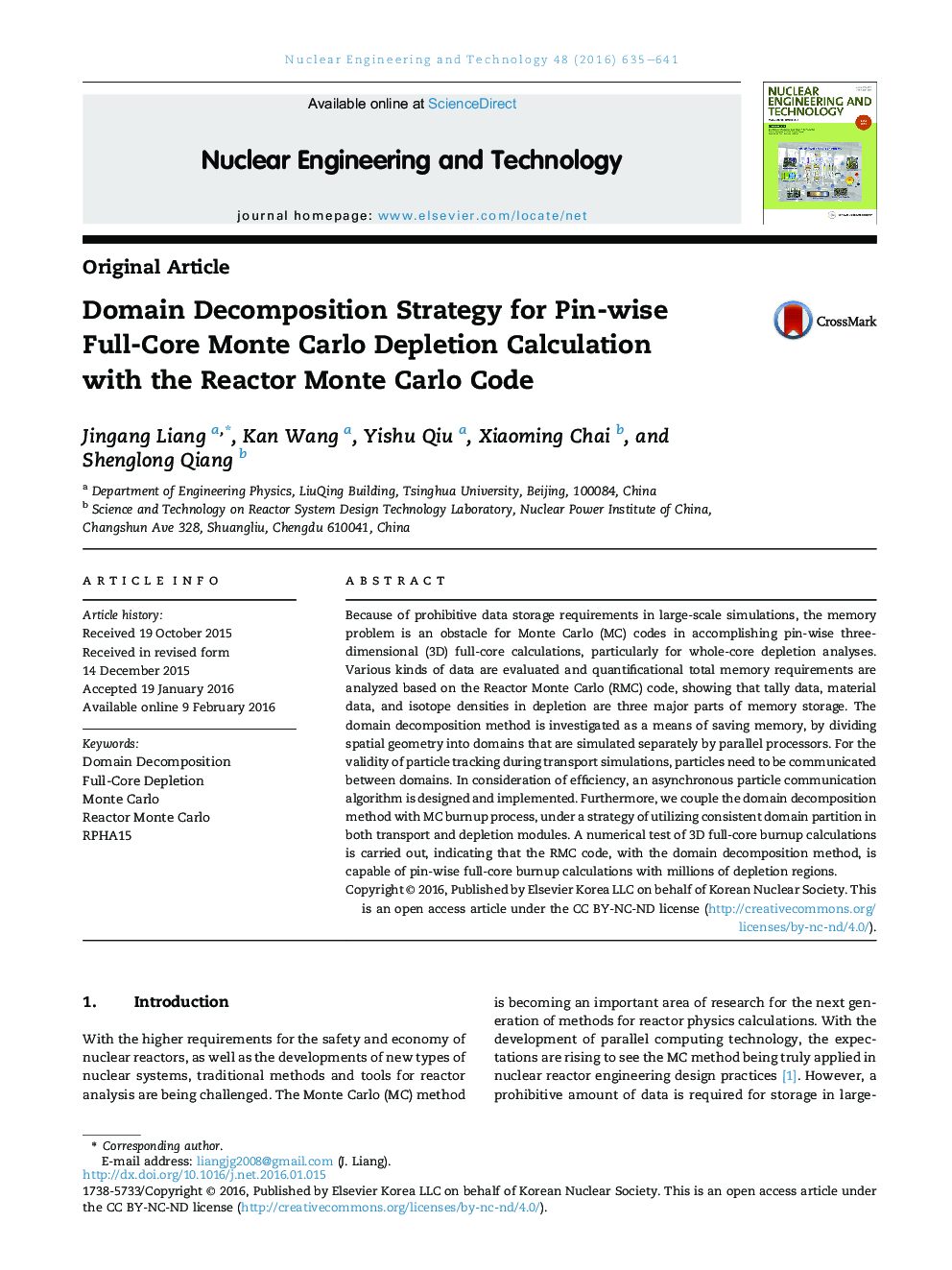| Article ID | Journal | Published Year | Pages | File Type |
|---|---|---|---|---|
| 1739854 | Nuclear Engineering and Technology | 2016 | 7 Pages |
Because of prohibitive data storage requirements in large-scale simulations, the memory problem is an obstacle for Monte Carlo (MC) codes in accomplishing pin-wise three-dimensional (3D) full-core calculations, particularly for whole-core depletion analyses. Various kinds of data are evaluated and quantificational total memory requirements are analyzed based on the Reactor Monte Carlo (RMC) code, showing that tally data, material data, and isotope densities in depletion are three major parts of memory storage. The domain decomposition method is investigated as a means of saving memory, by dividing spatial geometry into domains that are simulated separately by parallel processors. For the validity of particle tracking during transport simulations, particles need to be communicated between domains. In consideration of efficiency, an asynchronous particle communication algorithm is designed and implemented. Furthermore, we couple the domain decomposition method with MC burnup process, under a strategy of utilizing consistent domain partition in both transport and depletion modules. A numerical test of 3D full-core burnup calculations is carried out, indicating that the RMC code, with the domain decomposition method, is capable of pin-wise full-core burnup calculations with millions of depletion regions.
